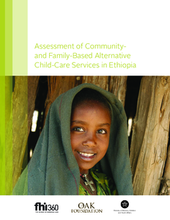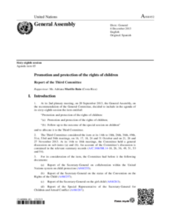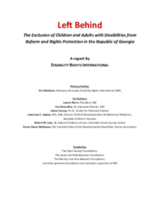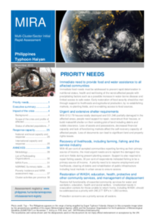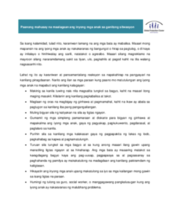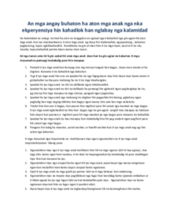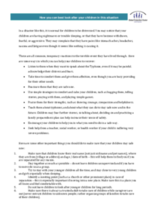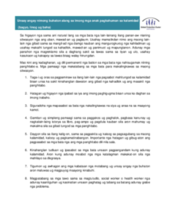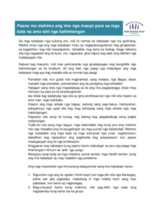Displaying 871 - 880 of 1090
This assessment conducted by FHI 360, with support from Ethiopia's Ministry of Women, Youth and Children Affairs (MoWYCA) and the OAK Foundation aimed to generate evidence about formal community and family- based alternative child care services and service providing agencies in Ethiopia, with a particular focus on magnitude, quality and quality-assurance mechanisms.
The United Nations General Assembly adopted without a vote four resolutions on children’s rights on the 18th December 2013, focused on the Rights of the Child, the Girl Child, Child, Early and Forced Marriage and Strengthening Collaboration on Child Protection within the United Nations system.
This hard-hitting report by Disability Rights International is the product of a 3-year investigation into the orphanages, adult social care homes and other institutions that house children and adults with disabilities in the Republic of Georgia. It finds that although the Government of Georgia has undertaken an ambitious child care reform process over the last decade, institutionalized children with disabilities were largely excluded from this reform process.
This important study on foster care practices in India provides important insight into the history, approaches, challenges and opportunities facing the development of foster care services in the country, presenting a picture of foster care practices across nine Indian states.
To better understand the impact of Typhoon Haiyan on affected population, more than 40 agencies conducted a multi-cluster initial rapid assessment (MIRA) in 9 provinces covering 92 municipalities and 283 barangays. The (MIRA) confirmed that the impacts of Typhoon Haiyan follow a relatively clear geographical pattern.
Key Messages for Caregivers in a Sudden Onset developed by the Global Child Protection Cluster in response to Typhoon Haiyan (Yolanda) in the Philippines
Key Messages for Caregivers in a Sudden Onset developed by the Global Child Protection Cluster in response to Typhoon Haiyan (Yolanda) in the Philippines
Key Messages for Caregivers in a Sudden Onset developed by the Global Child Protection Cluster in response to Typhoon Haiyan (Yolanda) in the Philippines
Key Messages for Caregivers in a Sudden Onset developed by the Global Child Protection Cluster in response to Typhoon Haiyan (Yolanda) in the Philippines (Cebuano)
Key Messages for Caregivers in a Sudden Onset developed by the Global Child Protection Cluster in response to Typhoon Haiyan (Yolanda) in the Philippines (Ilongo)

